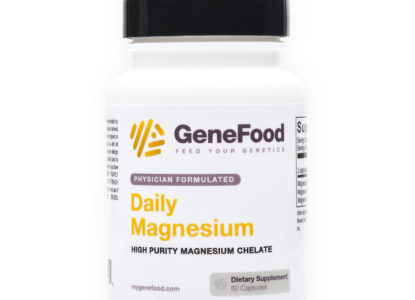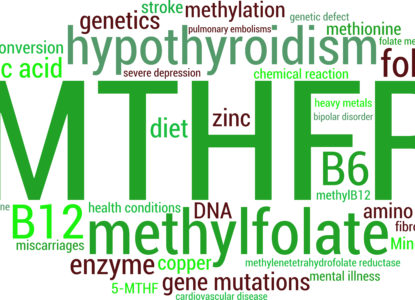Why You Might Not Need a Glutathione Supplement
Article at a Glance
Glutathione

Contents
- Sources of Glutathione
- Glutathione production slows down as we age
- Oral GSH has not been found to increase blood levels of GSH when taken for short periods
- Glutathione supplementation is most beneficial in certain chronic diseases and during exercise
- Does GSH supplementation shut off or slow down its production in the body?
Glutathione (GSH) is an antioxidant that is made in the human body, which is it’s called an “endogenous” antioxidant. Glutathione’s main job is to neutralize free radicals. It also helps with the breakdown of nutrients and the regulation of important body processes, such as the immune response.
Free radicals are unstable molecules, that form in response to dietary and environmental factors, but also form during several disease states. Glutathione plays a major role in limiting their damaging capacity, as well as aid in the detoxification of endogenous metabolic products such as lipid peroxides, and xenobiotic compounds such as pollutants, heavy metals, and drugs.
See also: live close to a highway? Eat your broccoli.
A very fine balance exists between oxidant and antioxidant levels in the cell, and when more free radicals exist than antioxidants, oxidative cell damage occurs. This imbalance can be due to numerous reasons, however, one of the main factors contributing to an increase in oxidant status is lower levels of antioxidants such as GSH, that are present.
The direct effects of oxidants in the cell include cell membrane and organelle damage, which indirectly leads to inflammation and a variety of health issues ranging from high blood pressure and diabetes to Alzheimer’s disease and more.
The good news is that your body produces its own glutathione when needed. The bad news is that aging, poor diet, pollution, infections, toxins, medications, radiation, chemotherapy, stress, and trauma all deplete your glutathione levels.
In addition to being an antioxidant, GSH also plays a role in:
- Production of protein and prostaglandins
- Activation of enzymes
- Natural synthesis and repair of DNA
- Metabolism of toxins and cancer-causing substances
Even though your body can produce antioxidants, you can derive them from your diet or through GSH supplementation.
Sources of Glutathione
Glutathione is readily available in several types of foods, such as fruits and vegetables. Interestingly, a study published in Nutrition and Cancer found that dairy products, cereals, and breads are generally low in GSH, whereas fruits and vegetables have moderate to high amounts of the antioxidant, with freshly prepared meats having the highest levels of GSH1.
See also: CBS genes and sulfur
The same study also found that frozen foods generally had GSH levels that were similar to fresh foods, whereas other forms of processing and preservation of these foods resulted in the extensive loss of GSH.
Eating food that is high in GSH is great, however, the general consensus is that our bodies don’t seem to absorb glutathione well from foods. Certain foods high in amino acids that contain sulfur may help boost these levels. These foods include:
- Asparagus
- Unprocessed meat
- Avocados
- Spinach
- Garlic
- Broccoli
With regards to supplements, some compounds may boost your body’s production of glutathione, these include:
- Vitamin E
- Curcumin
- N-acetylcysteine
- Silymarin
- Vitamin C
- Selenium
Glutathione production slows down as we age
Total glutathione levels have been shown to decrease with age and have been demonstrated in both rat models and human models of aging (particularly after the age of 45 in humans). It has been suggested that as we age, our bodies have a reduced ability to synthesize GSH. This is supported by the fact that suboptimal concentrations of GSH have been associated with the age-related presence of oxidized (damaged) proteins 2. In simple terms, as you age, you have less GSH to neutralize the oxidants which leads to their accumulation in the cell, leading to damage over time.
So, because of the benefits of maintaining antioxidant defenses to prevent age-related damage, as well as to combat various acute and chronic diseases, approaches to increase systemic and/or tissue-specific GSH concentrations are of considerable investigational interest.
Oral GSH has not been found to increase blood levels of GSH when taken for short periods
In healthy individuals, GSH supplementation does not appear to increase blood levels of GSH significantly. Several studies have been done to test the dosages and time courses to boost GSH levels and have found this to be challenging.
There is one study that was done on healthy volunteers who did show an increase in GSH levels:
This was a randomized controlled trial in 54 adults who took oral glutathione supplementation (250 or 1,000 mg/day) over a period of 6 months. GSH levels in the blood, plasma, and immune cells were tested after the 6 months 3. What they found was that GSH levels in blood increased after 1, 3, and 6 months versus baseline at both doses. Interestingly, at 6 months, the GSH levels increased 30–35 % in plasma and immune cells in the high-dose group. The authors found that in most cases, the increases in GSH that were observed were dose and time-dependent, and levels returned to baseline after 1 month.
So, if you are intent on getting your GSH levels up, you’d have to take GSH at a high dose for at least 6 months.
Glutathione supplementation is most beneficial in certain chronic diseases and during exercise
Research has proven that several diseases such as cardiovascular disease, Parkinson’s, autoimmune diseases, and celiac disease are associated with low GSH levels. Also, in patients undergoing harsh treatments such as chemotherapy and radiation, patients are severely glutathione deficient.
It has been concluded that these patients usually benefit from even a slight elevation in their GSH levels. It must be mentioned that GSH is administered intravenously and inhaled to achieve the desired dose as oral supplementation is not as effective.
Interestingly, it has been suggested that GSH could be used as an adjunctive treatment to the current treatment approaches in COVID-19 patients 4.
With regards to the effects of GSH on sporting performance, one study showed that 2-week oral GSH supplementation (1g/day) alleviated fatigue in healthy men during and after a cycling exercise5. Most striking was the observation that the positive effects of GSH supplementation on sports performance could be observed by blood lactate levels (the end product of exercise that causes fatigue and stiffness) being suppressed.
Does GSH supplementation shut off or slow down its production in the body?
Yes, it does, but it’s unlikely that this would be permanent.
Your body has a way of sensing the levels of every chemical in your body, including GSH. So, when you’re supplementing with GSH, your cells sense that your blood levels are adequate and in response, stop making GSH. Prolonged supplementation may shut this process down, making you reliant on GSH supplements to keep your levels constant.
If you’re healthy, it’s better to increase your levels through diets or precursors of GSH such as by supplementation with N-acetyl-L-cysteine (NAC), α- lipoic acid (ALA), whey preparation, or L-glutamine.



